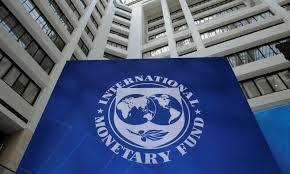ISLAMABAD: Following the conclusion of the first round of technical negotiations on Friday, the International Monetary Fund (IMF) and Pakistan are expected to share nine tables outlining the macroeconomic and fiscal framework. This will pave the way for policy-level negotiations the following week.
A staff-level agreement will be signed if Pakistan and the Washington-based lender agree on remedies to improve the economy by February 9.
Imran Khan, the ex prime minister of Pakistan, described the continuing, since January 31, negotiations as “difficult.”
The premier hinted at harsh measures to be taken to restart the delayed loan programme when he claimed that the IMF is giving Finance Minister Ishaq Dar and his staff “a terrible time” when speaking at a meeting in Peshawar on Friday.
The macroeconomic framework, which the authorities substantially revised downward and shared with the Fund, projects that real GDP growth will decline from 5% to 1.5% to 2% in the current fiscal year, while inflation will rise from 12.5% to 29% on average.










